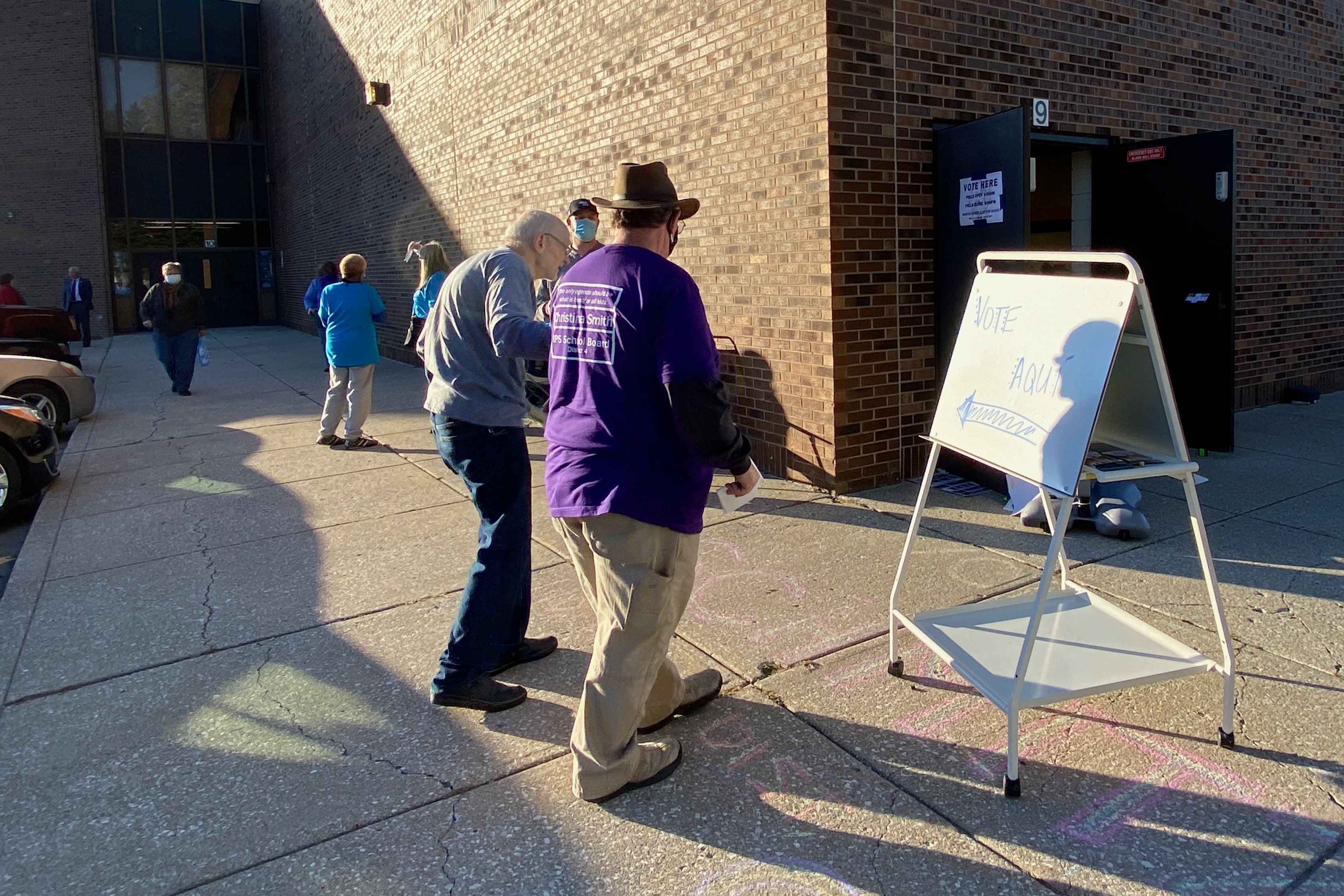Supporters of Indianapolis Public Schools Superintendent Aleesia Johnson’s administration appear poised to hold on to at least two seats in the race for control of the school board. But with many votes uncounted, the outcome of two other races remain undetermined.
Marion County Clerk’s Office was counting ballots until nearly midnight Tuesday.
Ten candidates were competing in races for four seats — a majority of the seven-member board.
The winners will help set the direction of the 31,000-student district by overseeing the superintendent, setting priorities, and signing off on the budget. The vigorous campaign pitted well-financed supporters of the current IPS administration against opponents who are critical of the district’s collaboration with charter schools.
Incumbent Venita Moore, who was backed by groups that support charter partnerships, was winning nearly 80% of the vote late Tuesday. Moore’s District 2 seat covers the north east slice of the district. Challenger Daqavise Winston, who formerly worked in discipline in IPS, trailed with 20%.
In District 1, IPS parent Will Pritchard led with about 65% of the votes. A political newcomer, Pritchard was supported by choice-friendly groups. His opponent, teachers union-backed candidate Brandon Randall, a program director for a youth services nonprofit. The east side district was previously represented by Michael O’Connor, who favored partnerships with charter schools and did not run for reelection.
The two other races remained extremely close late Tuesday. At-large candidate Kenneth Allen, a newcomer with the backing of several choice-friendly political action committees, was just one percentage point ahead of incumbent Elizabeth Gore, who was supported by the teachers union. Each of them had about 40% of the vote, while Kendra McKnight and Ellis Noto trailed significantly behind.
In one of the hardest-fought races in the election, incumbent board member Diane Arnold held a slim lead over activist and IPS parent Chrissy Smith. Arnold represents District 4, which includes the west and south side of the district.
Candidates for school board often can win by small margins. The seats represent relatively small regions, and many voters do not cast a ballot — in part because they may not know about the race or the candidates in the non-partisan contest. In 2018, nearly 32,000 IPS residents who cast ballots did not vote for an at-large candidate for school board. Susan Collins won the seat by about 700 votes.
Outside the polling place at Irvington Community School on Election Day, Jeremy Stephens said that he supported Pritchard for the District 1 seat because he seemed like a trustworthy family man. But Stephens, who has two children at School 57, chose not to vote in the at-large race because he didn’t feel well-informed about the candidates.
Lejuan and Casey Harris, who voted Tuesday at Brookside Park, supported Venita Moore and Elizabeth Gore. But the couple, who sent their children to IPS, were distrustful of district leaders and frustrated that programs had been cut and schools closed.
“I’m 45 years old, and I went to IPS. There’s been problems with IPS since I went to school. Lack of funding. You know what I mean. Teachers are underpaid,” Lejuan Harris said. “Everybody knows this. And everybody says they are going to change it, and nobody has done it yet.”
Earlier this week at the Indianapolis City-County Building, early voter Brian Gill said he favored Kenneth Allen for the at-large seat. He wants to see better pay for teachers, which he believes will improve education for students.
Gill primarily decided to support Allen because of good word-of-mouth when he asked people he knew about Allen, he said. “That’s why he’s getting my vote.”
IPS teacher Ilana Shinkle, who voted early during fall break, said that she chose Elizabeth Gore because “she supports our neighborhood public schools” rather than partnerships with charter schools, she said.
Allies of the administration vastly outraised their opponents. Candidates friendly to charter schools raised over $390,000 by the election, out of a total of more than $430,000 raised for the campaign.
At-large candidate Allen raised at least $174,000, an enormous sum for a local school board election. Largely bankrolled by pro-charter political action committees, Allen’s campaign deluged voters with flyers, text messages, and advertising.
Incumbent Gore, meanwhile, raised about $12,000. Her largest contribution was an $8,000 donation from the political action committee of the state teachers union.
Political spending is particularly influential in school board races because voters often know little about the candidates or issues. In 2016, however, Gore herself proved it is possible to win a seat on the IPS board without a large war chest. She defeated the incumbent to win a seat after raising about $1,200.
The two other candidates for the at-large seat, Noto and McKnight, did not file campaign finance reports.





